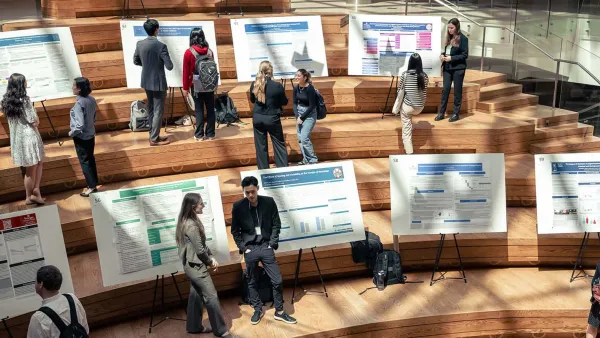https://eeps.wustl.edu/xml/faculty_staff/13978/rss.xml
View All People
Alex Bradley studies the coevolution of life and the Earth. He is interested in using techniques from both geochemistry and biology to better understand the history of life and how biogeochemical cycles have changed through Earth history.
One part of Professor Bradley's work pertains to the study of organic geochemistry. Organic geochemistry involves the characterization of the molecular structures and stable isotopic compositions of biological products detected in the environment. The information obtained from these molecules can be used in a wide range of applications, from understanding the cycling of carbon through ecosystems, to characterizing petroleum, to examining environmental contaminants, to reconstructing paleoclimate.
Another part of his work involves conducting laboratory experiments to gain a better understanding of the information contained in geochemical biomarkers. Many aspects of physiology and environment can influence the suite of products produced by different organisms, as well as the stable isotopic compositions of the products. Through careful laboratory experimentation, he works to arrive at a better understanding of how to interpret the signals we observe in the geochemical record.
Recent Courses
Geology in the Field (EEPS 104)
This course is designed to develop foundational skills in field geology and earth science while promoting leadership and teamwork. There are no prerequisites and the class is suitable for students with little or no academic background. Students are not required to have extensive outdoor experience, but must demonstrate enthusiasm for work in challenging environments. Students will receive training in a variety of field methods, including field mapping; sampling protocols; section measurement; and structural identification and analysis. Course will be field-intensive with multiple field exercises during class periods, and 2-3 weekend field trips that will involve camping, caving, and backcountry hiking.
Biogeochemistry (EEPS 323)
Survey of biogeochemical interactions among Earth’s crust, oceans, and atmosphere, including perturbations due to human activities. Carbon, nitrogen, phosphorus, and sulfur biogeochemical cycles. Greenhouse warming of atmosphere from carbon dioxide and chlorofluorocarbons; effects of inorganic and organic wastes in groundwater systems. Introductory course for students of environmental science and nonscience majors.
Organic Geochemistry (EEPS 445)
Introduction to the composition and analysis of organic material in the environment and geological record. Molecular to global-level perspective of organic matter cycling, reactivity, and fluxes; formation and classification of organic matter, its preservation potential, diagenesis, catagenesis, and kerogen formation; coal, petroleum, and gas formation and accumulation; biomarkers in Earth history; genetics and phylogeny of biomarker compounds; overview of analytical techniques including both structural and isotopic aspects; oceanographic and paleoenvironmental applications of organic biomarkers; contaminants and residue analysis.
Professor Bradley's laboratory studies the biogeochemistry and geobiology of natural systems, with an emphasis on molecular products of life that can be preserved in the geological record. They focus on organic geochemistry and isotope geochemistry. This leads to an examination of the structures and isotopic compositions of natural products, the genes and regulatory networks required for their biosynthesis, the physiological conditions that lead to their biosynthesis, and the information that they contain. They conduct both field and laboratory investigations to try to gain a better understanding of local and global biogeochemical cycles, and how these have evolved over Earth history. Specific research projects can be found on the laboratory website.



